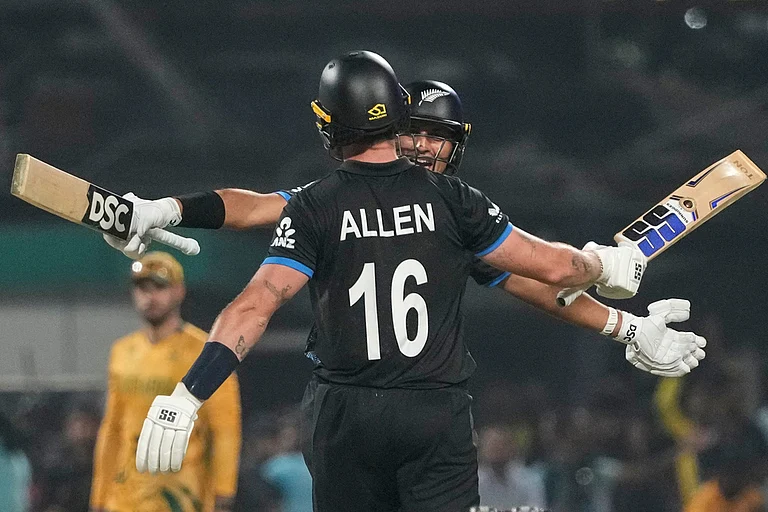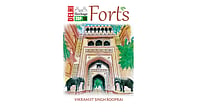Filmi Stories
Kunal Basu
Penguin India
Rs 499
Filmi — it’s an adjective that has been floating around in India from the palmy days of Bollywood, an adjective that most usually refers to stagey plots or over the top dialogues.
In his introduction to Filmi Stories, Kunal Basu talks of a cross genre approach in which he unites the visual appeal of cinema with fictional narrative. All the eight stories in this —his first short story collection after Japanese Wife— are set against backdrops with strongly visual possibilities — a jail, a casino in Nepal, a cruise liner, a boutique art gallery, and, in the opening story OK Tata, in the cabin of a truck coasting down highways of darkness.
These make for a clutch of interesting situations in which Basu’s in-depth research plays a vital role since, quite obviously, one does not run into truck drivers, card sharpers, or even passport-forgers in everyday life. He immerses himself in the world of rubber stamp makers, the politics of art galleries, and the life of entertainers on cruise liners to craft his stories and give them the authentic sense of place.
The stories travel the fields of fraud, murder, and violence with an undercurrent of yearning thrown in. A successful tycoon with a high-end watch for every day of the week secretly longs to return to the poetry writing days of his youth. The prison in-charge and his wife want to see love blossom in jail. There is innocence and a feel-good factor to most of the stories which occasionally call Jeffrey Archer to mind since the characters and the situations could have inhabited his stories as well – jails certainly come top of mind since Lord Archer was a jailbird. However, the different characters that flit through the pages give Basu the opportunity to inhabit many types of identity.
The motivations behind the stories are direct and relatable, whether it is helping people hide their identities, bringing lost lovers together, finding a missing father, or helping friends carry out a sting operation. This gives them a pacy trajectory intercut with back stories or parallel scenarios wherever relevant.
There is a gentle twist at the end of some of the tales; Passport Wallah is notable in that respect. Patna follows the lines of Japanese Wife simply by being a story about waiting — an exploration of the surreal plight of the passenger caused by never-ending flight delays with no explanations given and the terror of being stranded in a deserted terminal.
In all the cases, it is the setting that lends the stories their interest and context. And the setting is accentuated by occasional lifestyle buzzes — apart from the watches in The Strugglers, the fondness of women for the shade oxblood red in lipsticks and nail polish recurs— though the shade is, in fact, an important clue to the identity of a murderer. His women characters, even when not criminal are pushy and indomitable driving their better halves on to action that in most cases throws up ‘hurdles’. Men die for them and lie for them when called on to do so — again with something of Hindi film hero about their actions.
Basu seems to have moved away from the dark world that he inhabited in novels like Kalkutta, while retaining his bent for page-turning description. There are shades of darkness in the book and quite a few corpses but more on the grey side of dark and on the thrilling side of lit fic.
Possibly the most filmable of the stories is OK Tata which sweeps the highway with all its encounters along the way — highways films are in fact very popular. The story is boosted by the relationship between Jaggi the driver and Raju, his rival and helper, both of whom are at loggerheads over Jaggi’s wife which takes a turn away from the expected as the two hit the highway. It cuts to bats in ruined palaces in a very visual description of shadows flickering ghostlike on walls and takes in the moving of migrants during the pandemic — though for the sake of profit rather than actual charity. Unlike the rest, the story is emphatically blue collar. But yes, The Enemy, obviously inspired by Dr Vinayak Sen, could run a close second when it comes to reel possibilities.
Most writers nowadays put pen to paper with the idea of featuring on OTT in mind; with a title like Filmi Stories, one might say that was the case here — especially since it was a short story that shot Basu into the film world. However, in the current scenario that can only be speculation — readers will have to wait to turn on Netflix while they turn the pages of the book for their cinematic drama fix.






















